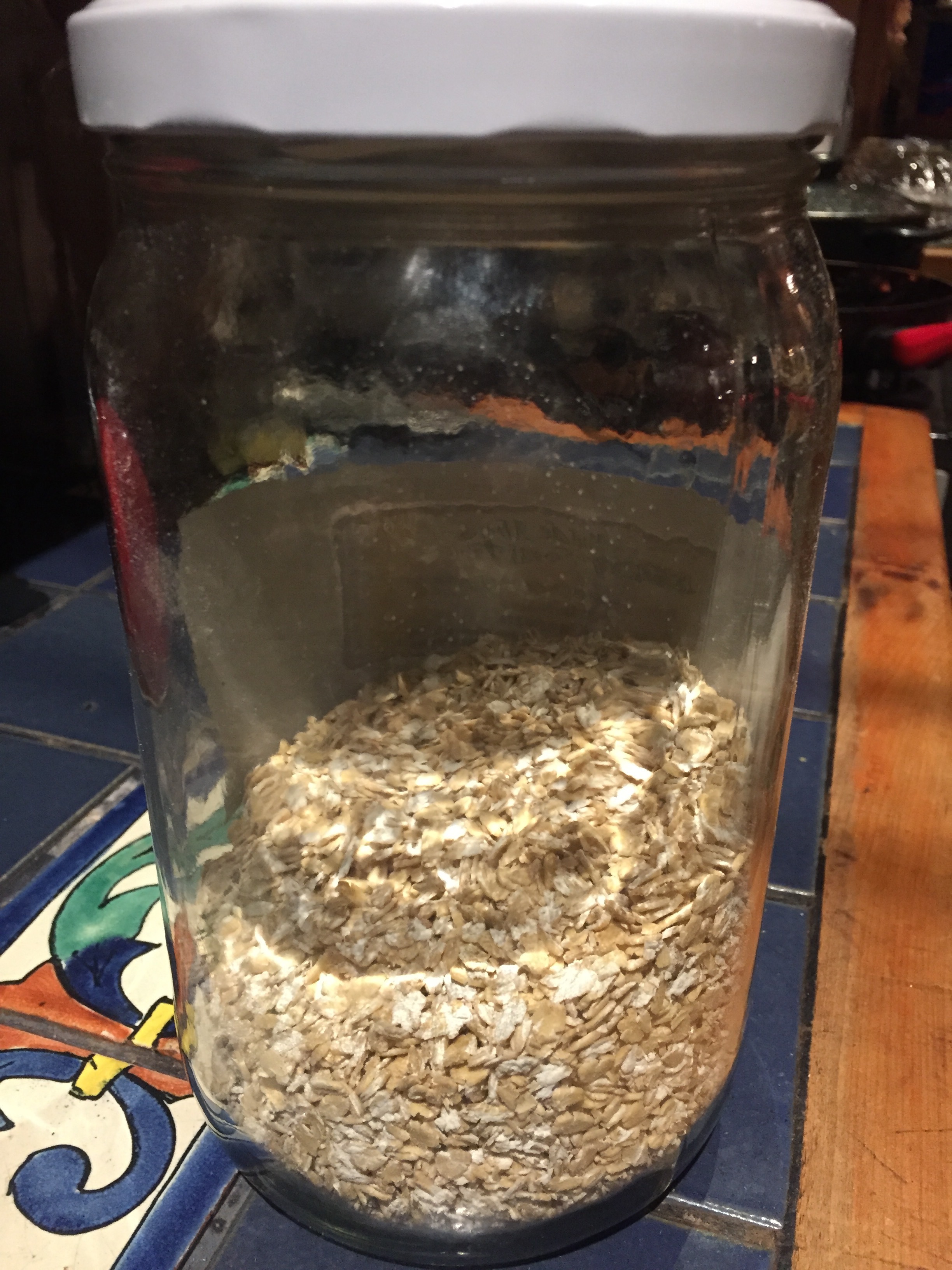I buy a huge sack of oats and it lasts me twice a year. I store the oats in a large glass honey jar that I've cleaned and reused. When the bag that I've bought the oats in is empty, it's perfect to carry firewood and gather kindling because it's sturdy and lasts. If I bought my oats at the grocery store, I'd consume at least two cardboard boxes (heavily printed with toxic dyes and therefore not healthy to burn in the fire, only suitable for landfill) and two foil bags that couldn't be recycled or easily reused. In the six months that my sack of oats lasts, I've avoided throwing away 12 cereal boxes and 12 foil bags. It's incredible how unconscious and invisible the waste actually is when you start to add it up. I'm so glad I live near a mill where I can find good quality oats in bulk...and that our local beekeeper sells honey in such massive jars that are perfect for storage :)
For me it's easy to first make lifestyle changes that we personally have control over, such as simply deciding what not to buy anymore, and adopting a practice of bringing reusable containers whenever you guys shopping.
But the next step that we have to take as individuals is to engage with companies and encourage them to join us in our efforts by not putting anything on the shelves that is "disposable"- challenge your favorite companies to design (or fully redesign) all of their products with the end-of-life in mind. It's easy to contribute to disposable waste because of convenience, but it's up to consumers and legislation to make it inconvenient for companies to package products in a disposable way.
